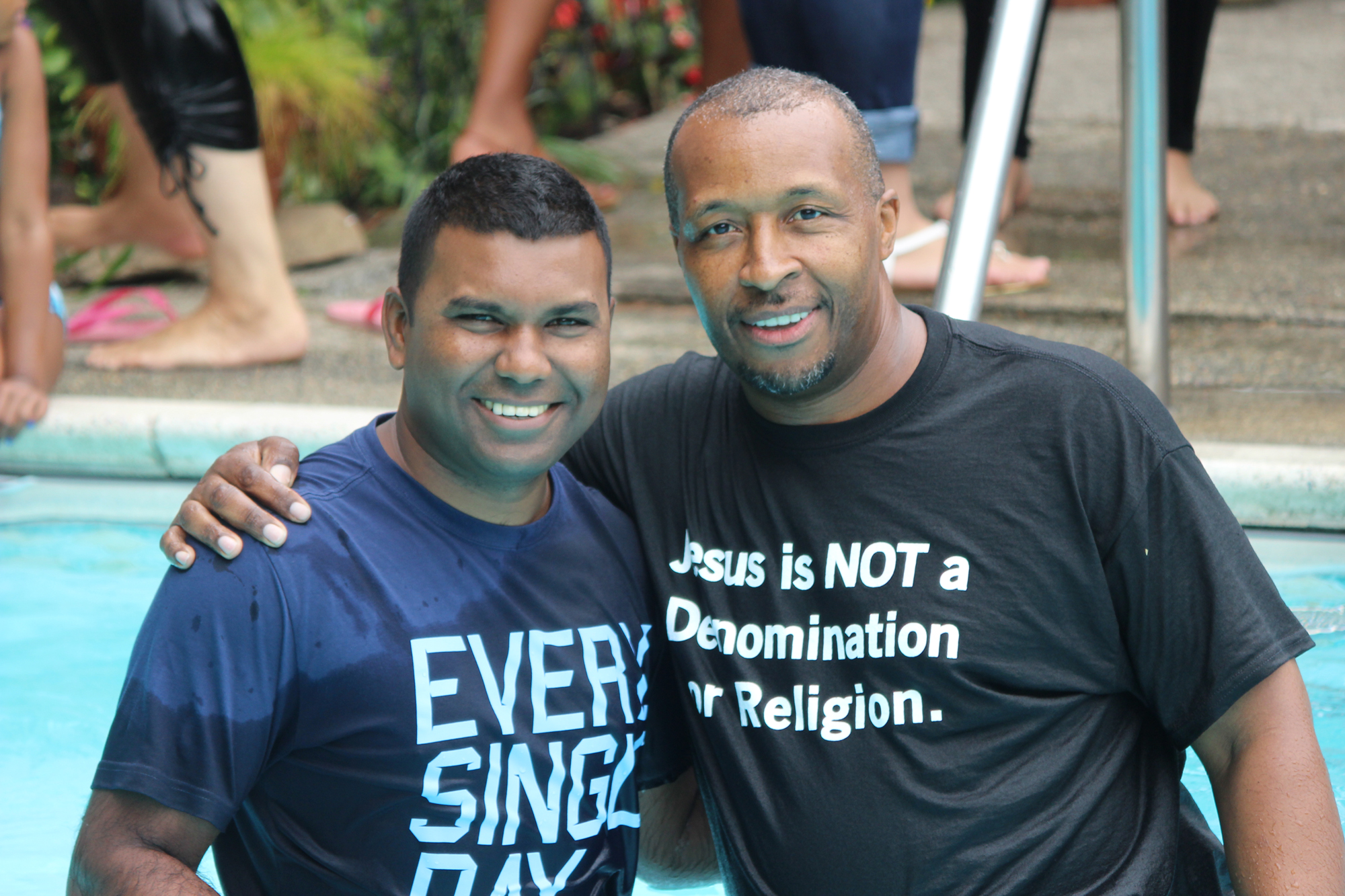
FORT WORTH, Texas (BP) — A professor at Southeastern Baptist Theological Seminary used his sabbatical 17 years ago to address his concern that “evangelism is often recognized as the heartbeat of the church, yet it is rarely the focus of serious research among biblical scholars.”(1)
Upon his return, David Beck, who taught New Testament and Greek, asked faculty and students during a chapel service:
“How did people in the first century [evangelize] without attending an evangelism training seminar? Did Paul invent the FAITH outline, did Peter ever go through CWT, and did James write the Four Spiritual Laws booklet? … Why did none of the New Testament authors write and circulate an evangelism how-to manual? … It would seem that evangelism was not something planned or programmed by the early church. Yet consistently and constantly, ‘The Lord was adding to their number day by day those who were being saved [Acts 2:47].'”
Evangelism in the early church, Beck concluded, was “the natural overflow of hearts filled with Jesus.”
How might today’s believer return to less programmatic Gospel presentations that result from such a “natural overflow”?
Perhaps such a transition would occur if we shifted from reciting memorized Gospel outlines to recalling the Gospel we first heard in order to believe. One way this kind of evangelism can be possible entails three questions:
1. What are the Gospel essentials?
What content must a person communicate in order to share the entire Gospel with unbelievers? Recall the apostle Paul’s summary of the Gospel: “For I delivered to you as of first importance what I also received, that Christ died for our sins according to the Scriptures, and that He was buried, and that He was raised on the third day according to the Scriptures” (1 Corinthians 15:3-4).
Anyone who knows enough of the Gospel to have heard it, believed it and been saved by it knows enough of the Gospel to share it. Conversely, anyone who doesn’t know enough of the Gospel to share it should ask whether he or she has ever heard and believed enough of the Gospel to have been saved by it in the first place.
Recall the Gospel message you heard and believed. At its core, it likely included:
— The reality and consequences of sin.
— The truth that the God-man Jesus Christ died for your sins, was buried and was raised on the third day
— An invitation to repent of your sins; believe Jesus’ death, burial and resurrection alone saves you; and verbally confess, “Jesus is Lord.”
Although your recollection of the Gospel’s core elements may be worded or enumerated differently, find encouragement that you already know the Gospel and can share it naturally with unbelievers.
2. What Scriptures will I use to communicate these essentials?
The New Testament presents two reasons why Scripture must be incorporated in our Gospel presentations. First, hearing the Word of Christ is prerequisite for biblical faith. Paul wrote, “So faith comes from hearing, and hearing by the word of Christ” (Romans 10:17). Second, evangelistic proclamations in the New Testament overwhelmingly incorporate the Scriptures (Luke 24:14-32; Acts 2:14-41; 3:11-26; 4:1-12; 7; 8:4, 35; 13:13-49; 16:25-32; 17:10-13; 18:5, 28; 20:27; 26:22-23; 28:23-27).
Likely you can call to mind verses that, in their immediate context and with their intended meaning, communicate the Gospel essentials that you heard and believed. For example, Romans 3:23 communicates the consequences and reality of sin. 1 Corinthians 15:3-4 conveys the truth that the God-man Jesus Christ died for your sins, was buried and was raised on the third day. And Romans 10:9 conveys the Gospel’s invitation to repent of your sins; believe in Jesus Christ and in His death, burial and resurrection for your salvation; and verbally confess, “Jesus is Lord.”
With the Spirit’s help, select a verse that communicates each of the Gospel essentials you have identified. Now, utilize them in presenting the Gospel’s essentials.
3. How will I instruct a willing hearer to repent, believe and confess?
Some Christians believe that the most difficult aspect of evangelism is the beginning of the process — starting a Gospel conversation with another person. However, another aspect that can be just as challenging, if not more so is finding that the person you evangelize is simultaneously convicted by God’s Spirit, yet you don’t know how to help him receive Christ.
If, after an unbeliever hears the Gospel and is convicted by the Spirit, and you are convinced he genuinely desires to repent, believe and confess, then consider asking him to call on God in prayer. Usually, an unbeliever does not know how to pray to God. So, first have him articulate in prayer the reason he finds himself praying to God. Generally, you are listening for him to admit his sinfulness and need for God’s forgiveness. Second, ask him to tell God, in his own words, what he has understood from the Gospel essentials you shared that can forgive his sins and make him right with God. Listen for him to reference the essence of the Gospel and confess with sincerity, “Jesus is Lord.” Last, invite him to thank God for what he understands God has done for him. Usually, new believers will thank God for His forgiveness, His presence, His mercy and His grace.
Evangelism, simply put, is a matter of going and telling someone about Jesus and helping them tell God the reason they need a Savior.























